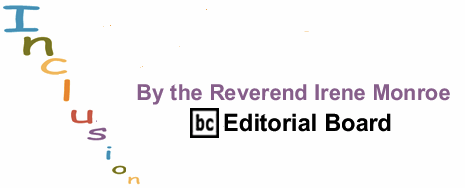
Mexico Sets the Tone on Hate Speech

Homophobic
epithets are so pervasive across the globe that most heterosexual people are
sadly unaware of the psychological and physical toil they have on lesbian, gay,
bisexual, transgender and queer (LGBTQ) people. Too often and cavalierly these
epithets go either unchecked or unchallenged as hate speech.
On March 6,
in a vote of 3-2,
“Even though
they are deeply rooted expressions in Mexican society, the fact is that the
practices of the majority of society can’t validate the violations of basic
right,” the Court wrote in support of its ruling.
The LGBTQ
communities across
Case in
point:
With the
phrase “TU ERE MARICON” (sic) written in his eye-black, the phrase can be
loosely translated as “You are a faggot” or “You’re a weak girl.”
“It didn’t
have significance to the way that’s being interpreted right now,” Escobar
emphatically stated through a Spanish interpreter. “That’s not the significance
that I put into it. That’s a word used often within teams. It’s a word without
meaning, the way we use it.”
Escobar, a
native of
“I have
friends who are gay. The person who decorates my house is gay; the person who
cuts my hair is gay. I have various friends who are gay. Honestly, they haven’t
felt as offended about this. They have just a different understanding in the
Latin community of this word,” Escobar stated, defending himself
to the media.
While the
word is no doubt homophobic it does seemingly carry different cultural
connotations throughout
“To tell a
man not to be a maricón, also means ‘don’t be a
coward.’” Cuban homophobia differs from homophobia in the
Language is
a representation of culture and if a culture is unaware of or anesthetized to
the destructive use of homophobic epithets, it re-inscribes and perpetuates
ideas and assumptions about race, gender identity and sexual orientation.
Consequently, these ideas and assumptions are transmitted from field houses to
playing courts and into the dominant culture. And, unfortunately, even accepted
or explained away among some scholars.
“It is
derogatory, but it’s not necessarily homophobic,” said Maria Cristina Cuervo, a professor of Spanish at the
While
Professor Cuervo agrees that the phrase is insulting,
she doesn’t grasp, however, that if the phrase “TU ERE MARICON” goes unchecked
or is not challenged it allows people within their culture to become
unconscious and numb to the use and abuse of the power and currency of this
homophobic epithet - and the power it still has to thwart the daily struggles
of many of us to ameliorate LGBTQ relations.
Also, part
of the problem contributing to the unconscious insensitivity to the phrase is
the cultural construction of “machismo.” In many Latin American cultures, it is
perceived a gross failure in masculinity. But this hyper-masculinity not only
exploits women, it also unabashedly denigrates and targets LGBTQ people as
scapegoats and pariahs.
Stephen O.
Murray further points this out in his essay, “Mexico” in the anthology, ***The Politics of Sexuality in Latin America:
A Readers of Lesbian, Gay, Bisexual and Transgender Rights, edited by
Javier Corrales and Mario Pecheny that “The perceived
failures of masculinity of ‘maricones’ made (and
makes) them ‘fair game’ to be robbed, beaten, and used as sexual receptacles by
males upholding conventional ‘macho’ notions of masculinity, particularly
policemen.”
With
landmark rulings made on behalf of LGBTQ citizens in many countries across the
globe these days, violence, intolerance, and discrimination are still a
constant.
Activists
have for decades argued the relationship between hate speech and violence.
Cleaning up language is just one more needed act furthering LGBTQ justice.
And

BlackCommentator.com Editorial Board member and Columnist, the Rev. Irene Monroe, is a religion columnist, theologian, and public speaker. She is the Coordinator of the African-American Roundtable of the Center for Lesbian and Gay Studies in Religion and Ministry (CLGS) at the Pacific School of Religion. A native of Brooklyn, Rev. Monroe is a graduate from Wellesley College and Union Theological Seminary at Columbia University, and served as a pastor at an African-American church before coming to Harvard Divinity School for her doctorate as a Ford Fellow. She was recently named to MSNBC’s list of 10 Black Women You Should Know. Reverend Monroe is the author of Let Your Light Shine Like a Rainbow Always: Meditations on Bible Prayers for Not’So’Everyday Moments. As an African-American feminist theologian, she speaks for a sector of society that is frequently invisible. Her website is irenemonroe.com. Click here to contact the Rev. Monroe.





